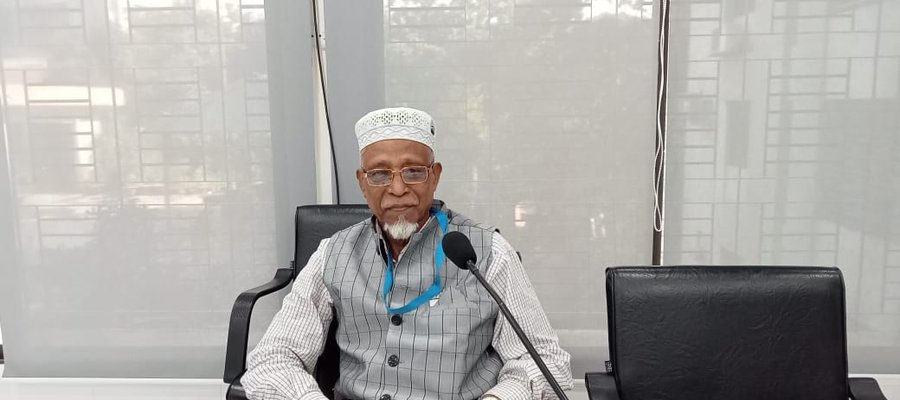Md. Kamal Uddin Wellesley Bailey Awards Winner 2024

Md. Kamal Uddin is one of four individuals to win the Wellesley Bailey Award in 2024. This is his story.
Kamal’s leprosy journey started in difficult times
Kamal was first diagnosed with leprosy by a general practitioner in 1969 after about 6 months of self-observation. At the time, there was no effective cure for leprosy and what treatments that did exist were not available to him until 1972 because of the war in Bangladesh.
In 1972, he was re-diagnosed and started treatment with Dapsone, one of the antibiotics that is included in the modern-day cure for leprosy, Multi Drug Therapy.
The delayed treatment had devastating consequences for Kamal. His left hand has clawed fingers and his right hand has two amputated fingers. He has suffered with chronic foot ulcers and has had to undergo an eye operation to correct impairments.
Discrimination has become a constant companion for Kamal
The list of discrimination that Kamal has faced is long. It started at school, when he was denied admission to higher secondary education. He faced rejection at local tea shops and restaurants and was excluded from social gatherings.
As he grew older, he found that no one was interested in marrying a person affected by leprosy and finding consistent employment was a constant challenge. Sometimes his leprosy-related disabilities and chronic ulcers made it hard for him to do his job and in some instances, employers would compel him to resign when he disclosed his leprosy diagnosis.
After a while, Kamal switched professions and opened a small food shop. However, his business couldn’t be sustained for long as customers stopped buying food from his shop when they learned he had leprosy.
Even later in life, as Kamal became a respected community leader, he faced challenges. For example, as an organisation leader, he was required to act as a bank signatory, but he could not get his signatures to match because of the impairments in his writing hand.
Kamal’s spirit of perseverance has got him to where he is today: a leader
Despite all the challenges he has faced, Kamal has persevered. It started by being consistent in getting his diagnosis and treatment, despite the challenging years he was living in. He has always practiced self-care at home and worn protective footwear. His commitment started in his care for himself and his condition, but it did not end there.
Driven by his own strong willpower, he decided to join a self-help group in 2008, a group facilitated by The Leprosy Mission. Through this group, he acquired leadership, management, and negotiation skills through both training and practical experience.
In 2009, he was elected as the Chairman of his local self-help group. By 2010, he had become a leader in the local federation, and by 2012, he was elected as the Chairman of the Disadvantaged Peoples’ Association (DAPA). Through his role at DAPA, he was leading 3,451 people across 275 self-help groups. Kamal’s leadership journey had taken great leaps in the four years after he joined his first self-help group.
Kamal’s impact on communities across Bangladesh is remarkable
In 2018, Kamal eventually became the founding Chairman of the Advancing Leprosy and Disadvantaged Peoples’ Opportunities Society, which is known as the ALO Society.
This national-level organisation today comprises 1700 self-help groups with around 20,000 members across 29 districts of Bangladesh.
Under Kamal’s leadership, the ALO Society has implemented four projects on Covid awareness, leprosy awareness, income generating activities, and support for child and adult education. He has secured funding for ALO Society’s work from a variety of international funders, with direct impact for thousands of people.
A totally of 808 students have received education support, 110 community members have benefited from income generating activities, and the ALO Society’s Covid prevention efforts reached more than 10,000 people across 1,027 awareness sessions. Moreover, health safety equipment, including masks and soap, were distributed to 6,722 community members. Like so many OPL leaders, Kamal was there for his communities during the worst days of the pandemic when they otherwise would have been left behind.
Kamal has become a powerful spokesperson for leprosy in Bangladesh
Kamal’s participation in conferences, seminars, and TV talk shows has been instrumental in educating the public about leprosy, dispelling myths, and promoting a more informed and compassionate societal response.
He has contributed to government legislation, NGO strategy development, and has spoken at the United Nations in Geneva.
Kamal is an immense leader and a very worthy winner of the Wellesley Bailey Award.